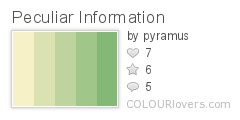Judgemental
I'm not talking about things like British "tyre" and "kerb", which are never seen in North America unless you're British, you're talking about those spellings, or you are hopelessly pretentious. We just don't ever use them. I'm talking about something quite a bit simpler, and more complicated.
The other day on The Friendly Atheist criticizing something that blogger had read, I read the following sentences:
Wrong about atheists being evil.
Wrong about all believers in God being humane to animals.
Oh. And wrong on the spelling of “judgment.”
A trifecta of ignorance topped with a heap of idiocy.
As soon as I see someone being criticized for making a spelling or grammatical error (particularly a contentious one) in the same breath as for being willfully ignorant, an alarm bell goes off in my head. If you believe that all Muslims should be rounded up and shipped out the country, that's just stupid, and you should be ashamed of yourself, but if in the same screed you, say, end a sentence with a preposition, then you made either a stylistic choice or a tiny error, but they're not the same thing as being stupid. (And if it's a letter to the editor, then you probably didn't even have the benefit of having an actual editor, since they're loath to change anything about the letters they receive--which will prompt even more angry letters.)
Is "judgement" wrong? No, it isn't.
It's true that "judgment" is much more often seen in North America than is "judgement", but neither spelling is wrong. Noah Webster decided that if a word ends in "-dgement", as in "acknowledgement", "lodgement" and "abridgement", the "-e-" sound was implied by the "-dg-" and therefore the vowel was superfluous and ought to be deleted. (If the word ends in "-gement", it is obvious that the "-e-" should be preserved, as in such words as "management", "arrangement", "engagement", and "infringement", so as not to end up with such possible pronunciations as "en-gag-ment" or "a-rang-ment".)
He had only the best intentions, but we ended up with yet another needless spelling rule. I have to say that, whatever his opinion, "judgement" is more logical, since it preserves the entire word "judge" and then adds the suffix of action. Does it contain a superfluous letter? Perhaps it does, but what of it? English is laden with them, testaments to the vast and varied history of the provenance of its words: Webster didn't, to the best of my knowledge, propose respelling "phlegm" as "flem", although no doubt spelling reformers have over the years.
When it comes to those "-dgement" words, I say spell them however you like and don't apologize.





